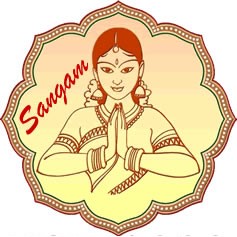by Wakeley Paul; originally published February 23, 2004
SOME REFLECTIONS ON TERRORISM
Terrorism and Rebellion Distinguishable like Theocracy is from Democracy
The common concept of terrorism is one of ruthless civilians who attack helpless unsuspecting civilians for political gain. Is that the only definition there is? If the first narrow definition was the only way to describe a terrorist, how come many of those who were once branded as terrorists wind up being acclaimed internationally as heroes?
To quote Pat Buchanan in the American Conservative in the March 1, 2004 issue “Accused terrorists have won the Nobel Peace Prize: Begin, Arafat, Mandela. Three lie in the mausoleums of the nations they created: Lenin, Mao and Ho. Others are fathers of their countries like Ben Bella and Jomo Kenyata. A terrorist of the black hand ignited World War I by attacking the Arch Duke Ferdinand. Yet, Gavrilo Princip has a bridge named after him in Sarajevo.”
 The reason is that there is a clear distinction between a rebel and a terrorist. A rebel is an underdog fighting a pit bull who rules over him. The sympathy gradually moves away from the bully to the underdog. A Terrorist, by contrast, is the bully. His victim is the helpless underdog; and the roles never shift. Therefore, sympathies never shift either. Rebellion & Terrorism are as far apart as Theocracy is from Democracy.
The reason is that there is a clear distinction between a rebel and a terrorist. A rebel is an underdog fighting a pit bull who rules over him. The sympathy gradually moves away from the bully to the underdog. A Terrorist, by contrast, is the bully. His victim is the helpless underdog; and the roles never shift. Therefore, sympathies never shift either. Rebellion & Terrorism are as far apart as Theocracy is from Democracy.
The Tamil Tigers are not running around blowing up innocent civilians for political recognition or gain. They are fighting a war against the armed forces of the ruling Sinhalese governments. They are rebelling against repression and discrimination. War and rebellion on the one hand and acts of terrorism on the other can hardly be regarded as synonymous. The concepts don’t coincide, they collide.
With the present political farce among the Sinhalese leaders, Prabakaran and the LTTE are gaining the international prestige that is inevitable for those who are fighting for their freedom from suppression and discrimination. The international community (IC) is beginning to increasingly recognize this civil war for what it is. The Sri Lankan government is no longer being given preemptive absolution to seize Tamil lands or deny Tamils equal rights or the right to a Federal State. More and more nations are recognizing the inequities of the situation and the nobility of the rebels’ cause. The brash upstart is now a sad victim.
The Sinhalese papers express shock and horror that the international community is talking to and helping to rehabilitate a war torn community. Their chorus of protest that these are terrorists is now wafting away with the wind. Their credibility has evaporated with the increased recognition of their crimes of oppression. The international community has seen through what has now become a wafer-thin cover-up of their previously well-shielded past.
Ranil Wickremesinghe is the only current leader who has the vision beyond the shadow of the Pirivenas. If he succeeds and can revive and resume the peace talks at the point at which they were interrupted, he will be embraced by the IC for his vision and honesty. If the peace talks die for want of give and take by the PA / JVP coalition, the Sinhalese fate may be a self-sealed destiny of isolation. However, the LTTE will no doubt append themselves to as many centers of power as possible while the enemy isolates themselves itself the world. That seems to be the aim and the goal of the new Sinhalese coalition twixt the PA and the JVP. This is cause for twin concerns: economic disaster and a resurgence of the ethnic crisis in their midst.